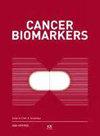Identification of the six-hormone secretion-related gene signature as a prognostic biomarker for colon adenocarcinoma
IF 2.2
4区 医学
Q3 ONCOLOGY
引用次数: 0
Abstract
BACKGROUND: Colon adenocarcinoma (COAD) is a globally prevalent cancer, with hormone secretion playing a crucial role in its progression. Despite this, there is limited understanding of the impact of hormone secretion on COAD prognosis. This study aimed to establish a prognostic signature based onhormone secretion-related genes and to elucidate the potential functional mechanisms of these genes in COAD. METHODS: Using data from The Cancer Genome Atlas COAD cohort (TCGA-COAD), six hormone secretion-related genes were identified (CYP19A1, FOXD1, GRP, INHBB, SPP1, and UCN). These genes were used to develop a Hormone secretion score (HSS), which was then evaluated using the Kaplan-Meier curve and multivariable Cox analysis. The HSS model was further validated with external GEO cohorts (GSE41258, GSE39582, and GSE87211). Functional enrichment analyses were performed, and the CIBERSORT and TIDE algorithms were used to assess tumor infiltration. RESULTS: The study developed a prognostic signature, dividing patients into HSS-high and HSS-low groups. The HSS-high group showed a notably worse prognosis within the TCGA-COAD dataset and in three independent datasets: GSE41258, GSE39582, and GSE87211. Moreover, the HSS-high group predicted a shorter overall survival rate in patients maintaining microsatellite stability (MSS). The functional analysis associated HSS-high with the hypoxic, epithelial-mesenchymal transition (EMT), and TGF-β signaling pathways and correlated with distant and lymph node metastases. The tumor immune microenvironment analysis revealed an elevated CIBERSORT score in the HSS-high group, suggesting an association with tumor metastasis. Further, the HSS-high group showed a higher TIDE score, indicating that patients with high HSS scores are less likely to benefit from Immune Checkpoint Inhibitor (ICI) therapy. CONCLUSIONS: This study demonstrated the prognostic significance of a HSS signature based on six hormone secretion-related genes in COAD. The findings suggest that this gene signature may serve as a reliable biomarker for predicting survival outcomes in COAD patients.将六种激素分泌相关基因特征确定为结肠腺癌的预后生物标志物
背景:结肠腺癌(COAD)是一种全球流行的癌症,激素分泌在其发展过程中起着至关重要的作用。尽管如此,人们对激素分泌对 COAD 预后的影响了解有限。本研究旨在建立基于激素分泌相关基因的预后特征,并阐明这些基因在 COAD 中的潜在功能机制。方法:利用癌症基因组图谱 COAD 队列(TCGA-COAD)的数据,确定了六个激素分泌相关基因(CYP19A1、FOXD1、GRP、INHBB、SPP1 和 UCN)。这些基因被用于制定激素分泌评分(HSS),然后使用 Kaplan-Meier 曲线和多变量 Cox 分析对其进行评估。HSS 模型通过外部 GEO 队列(GSE41258、GSE39582 和 GSE87211)得到了进一步验证。进行了功能富集分析,并使用 CIBERSORT 和 TIDE 算法评估肿瘤浸润情况。结果:该研究建立了一个预后特征,将患者分为 HSS 高组和 HSS 低组。在 TCGA-COAD 数据集和三个独立数据集中,HSS 高组的预后明显较差:GSE41258、GSE39582 和 GSE87211。此外,在保持微卫星稳定性(MSS)的患者中,HSS-高组预示着较短的总生存率。功能分析显示,HSS-高与缺氧、上皮-间质转化(EMT)和TGF-β信号通路有关,并与远处转移和淋巴结转移相关。肿瘤免疫微环境分析显示,高 HSS 组的 CIBERSORT 评分升高,表明与肿瘤转移有关。此外,HSS高分组的TIDE评分更高,这表明HSS评分高的患者不太可能从免疫检查点抑制剂(ICI)治疗中获益。结论:本研究证明了基于六个激素分泌相关基因的HSS特征在COAD中的预后意义。研究结果表明,该基因特征可作为预测 COAD 患者生存结果的可靠生物标志物。
本文章由计算机程序翻译,如有差异,请以英文原文为准。
求助全文
约1分钟内获得全文
求助全文
来源期刊

Cancer Biomarkers
ONCOLOGY-
CiteScore
5.20
自引率
3.20%
发文量
195
审稿时长
3 months
期刊介绍:
Concentrating on molecular biomarkers in cancer research, Cancer Biomarkers publishes original research findings (and reviews solicited by the editor) on the subject of the identification of markers associated with the disease processes whether or not they are an integral part of the pathological lesion.
The disease markers may include, but are not limited to, genomic, epigenomic, proteomics, cellular and morphologic, and genetic factors predisposing to the disease or indicating the occurrence of the disease. Manuscripts on these factors or biomarkers, either in altered forms, abnormal concentrations or with abnormal tissue distribution leading to disease causation will be accepted.
 求助内容:
求助内容: 应助结果提醒方式:
应助结果提醒方式:


